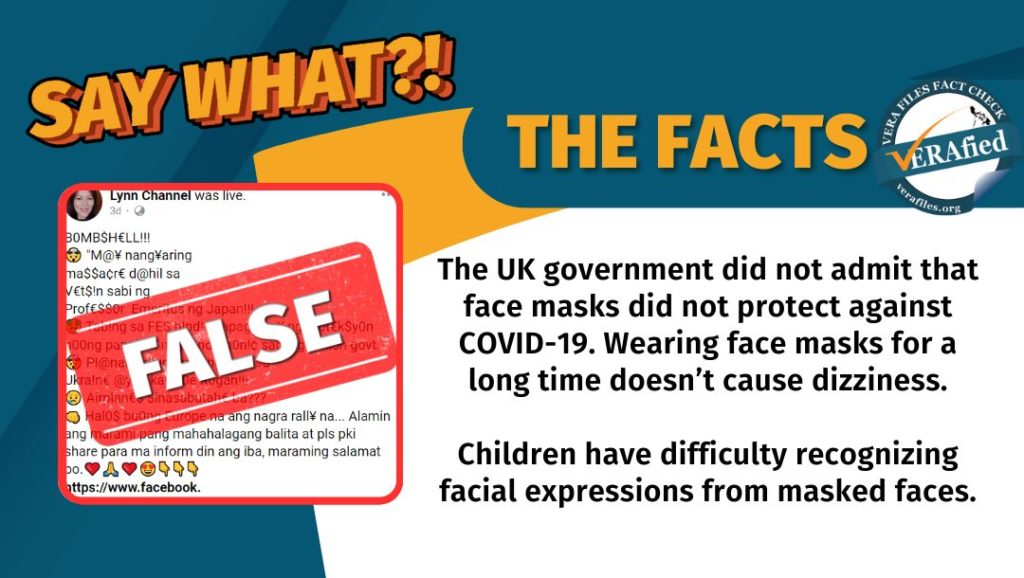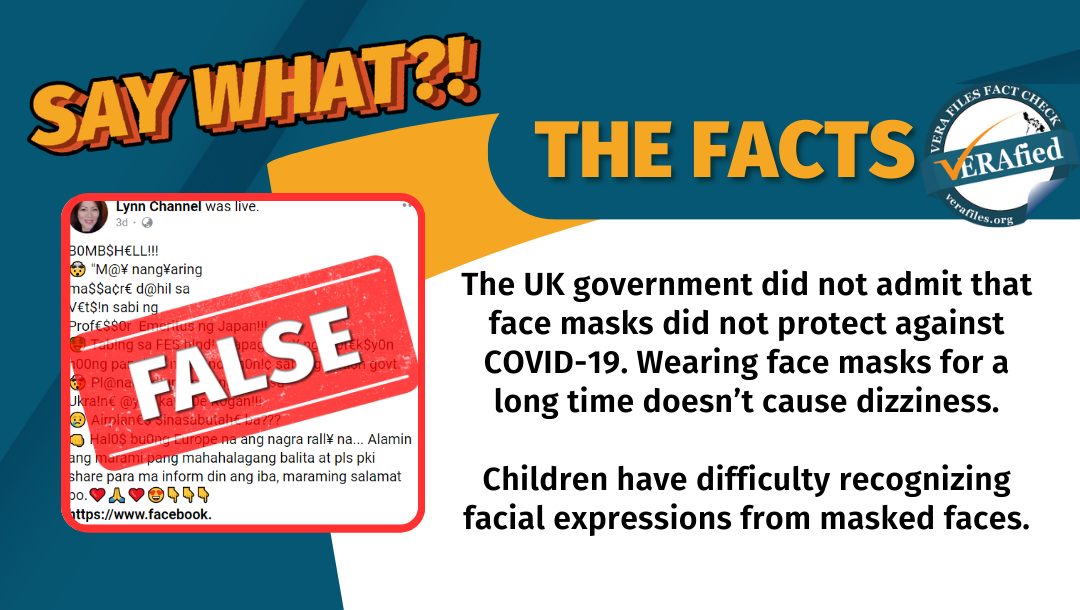A Filipina vlogger made two false claims and a misleading statement against the use of face masks.
The vlogger’s three-hour video, uploaded to Facebook (FB) on Feb. 11, claimed that:
- The United Kingdom (UK) government admitted that face masks did not give protection during the COVID-19 pandemic. Not true.
- Long-term wearing of face masks causes dizziness. This is false.
- Long-term wearing of face masks permanently hinders children’s development. This is misleading.
VERA Files Fact Check has repeatedly debunked the vlogger for anti-vaccine misinformation over the past three years.

| Claim | Rating |
| The United Kingdom (UK) government admitted that face masks did not give protection during the COVID-19 pandemic. | False |
This claim misinterpreted the findings of the UK HSA’s 2022 rapid study.
Contrary to the vlogger’s claim, the UK Health Security Agency (HSA) analyzed 25 medical studies in 2021 and concluded that face masks reduce the spread of COVID-19.
In 2022, the UK HSA reviewed 4,371 studies and found that none of the studies focused on the effectiveness of N95 masks in protecting people with a high risk of getting severely ill from COVID-19.
| Claim | Rating |
| Long-term wearing of face masks causes dizziness. | False |
“The claim that the prolonged use of face masks can cause oxygen deficiency, carbon dioxide intoxication, dizziness, or other health challenges is not grounded in science,” health experts from Meedan’s Health Desk said in 2020.
A 2021 study published by the International Archives of Occupational and Environmental Health concluded that wearing N95 and surgical masks for up to four hours is not directly related to dizziness.
| Claim | Rating |
| Long-term wearing of face masks permanently hinder children’s development. | Misleading |
Two academic studies concluded that children find it difficult to recognize facial expressions from masked faces. Neither suggests such effects are permanent.
A study published in the Journal of Experimental Child Psychology in 2023 found out that face mask wearing did not significantly affect basic language processing, but children cannot recognize happy and sad facial expressions from masked faces.
Another study published in Frontiers Psychology in 2021 discovered that 3 to 5 year olds had difficulty recognizing emotions from photographs of masked people, compared to unmasked people.
Posted by Facebook page Lynn Channel, the erroneous video garnered 1,065 reactions, 2,856 comments, and 7,600 views.
Have you seen any dubious claims, photos, memes, or online posts that you want us to verify? Fill out this reader request form or send it to VERA, the truth bot on Viber.
(Editor’s Note: VERA Files has partnered with Facebook to fight the spread of disinformation. Find out more about this partnership and our methodology.)


